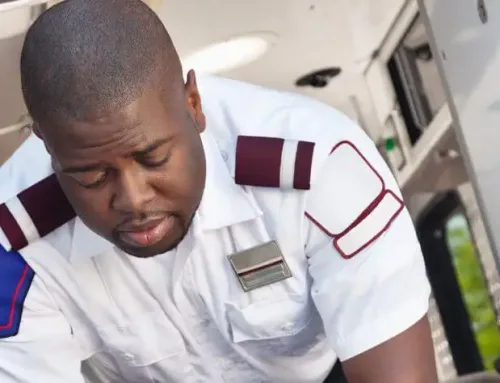Think You Can’t Get Into Pharmacy School? Here’s How to Boost Your Application
How hard is it to get into pharmacy school? It’s a common question, and the answer reflects the competitive nature of the field. With a growing demand for skilled pharmacists and rigorous academic requirements, many students find the application process challenging—especially those with lower GPAs or limited experience. However, the good news is that there are proven strategies to overcome these obstacles and make a strong case for admission.
Getting into pharmacy school isn’t just about grades; it’s about demonstrating commitment, academic readiness, and a passion for healthcare. By focusing on key areas such as improving academic performance, gaining hands-on experience, and presenting a compelling application, you can significantly boost your chances of success and achieve your goal.
What Makes Pharmacy School Admissions So Competitive?
Getting into pharmacy school is no easy task. With a competitive applicant pool, high academic expectations, and a holistic admissions process, applicants must bring their best to the table. Understanding these challenges is the first step to overcoming them and crafting a standout application.
Competitive Applicant Pool
The number of applicants to pharmacy schools has grown significantly, making the admissions process increasingly competitive. With a finite number of spots available in programs, only the most qualified candidates are accepted. As the healthcare landscape evolves, the demand for skilled pharmacists has risen, attracting more applicants to the field. Standing out in this competitive pool requires a well-rounded application that showcases academic, professional, and personal strengths.
High Academic Expectations
Pharmacy schools have rigorous academic standards, and meeting these is critical for acceptance.
GPA: Most programs require a minimum GPA of 2.5 to 3.0, but competitive applicants often have GPAs of 3.5 or higher.
Prerequisite Courses: Completing courses in chemistry, biology, and pharmacology with strong grades is essential.
Standardized Tests: Some schools require the PCAT (Pharmacy College Admission Test), where high scores can bolster your application.
Excelling academically not only demonstrates readiness but also reassures admissions committees of your ability to handle the rigorous curriculum.
Holistic Admissions Process
Pharmacy schools look beyond academics to assess candidates holistically, considering various aspects of their application.
- Experience: Volunteer work, internships, or shadowing pharmacists showcase your commitment and practical understanding of the field.
- Personal Statements: A compelling essay allows you to share your story, passion, and career goals.
- Recommendations: Letters from professors, mentors, or healthcare professionals highlight your strengths and character.
- Interviews: Admissions committees value confident, well-prepared applicants who can articulate their motivations and goals.
By addressing all these areas thoughtfully, you can present yourself as a well-rounded and prepared candidate.
Understanding the challenges of pharmacy school admissions allows you to prepare strategically and build a compelling application. With determination and focus, your goal of becoming a pharmacist is within reach.
Why Pharmacy Schools Say No—and How to Turn It Into Yes
Pharmacy school rejections can be disappointing, but understanding the common reasons behind them is the first step to improving your application. Issues like a low GPA, lack of relevant experience, or a weak personal statement often stand out as red flags. Fortunately, addressing these pitfalls strategically can turn things around and help you succeed.
Common Pitfalls
Pharmacy school admissions committees are thorough, and certain issues can quickly lead to rejection.
- Low GPA: Falling short in science prerequisites or maintaining a low overall GPA raises concerns about your readiness for the program’s academic rigor.
- Lack of Experience: A limited background in healthcare or pharmacy-related roles suggests insufficient exposure to the field.
- Generic Personal Statements: Essays that fail to highlight your passion for pharmacy, unique experiences, or career goals often make applications forgettable.
These common mistakes can overshadow other strengths in your application, making it crucial to address them effectively.
How to Overcome These Obstacles
Addressing the reasons for rejection requires focus, determination, and a clear plan.
Boost Your GPA: Consider post-baccalaureate or graduate programs to strengthen your academic foundation. Excelling in challenging coursework shows admissions committees you’re ready for rigorous studies.
Gain Relevant Experience: Volunteer or work in pharmacies, healthcare settings, or research labs to demonstrate your commitment and understanding of the field.
Write a Compelling Personal Statement: Highlight your passion, resilience, and unique journey. Tailor your essay to showcase why you’re a perfect fit for the program.
By identifying and addressing these challenges, you’ll position yourself as a stronger candidate ready to succeed in pharmacy school.
From Average to Outstanding: Strengthen Your Pharmacy Application
Crafting a strong pharmacy school application requires more than just meeting the minimum requirements. By improving your academic credentials, gaining relevant experience, and excelling in key areas like personal statements and recommendation letters, you can significantly boost your chances of acceptance. Here’s how to stand out.
1. Improve Academic Credentials
Admissions committees prioritize academic excellence, so addressing gaps in your record can make a big difference.
- Retake Prerequisite Courses: If your GPA needs improvement, retaking core classes like biology, chemistry, or pharmacology can demonstrate commitment and growth.
- Enroll in Advanced Programs: Consider a post-baccalaureate or master’s program, like SCU’s Master of Science in Medical Science, to strengthen your foundation and prove readiness for rigorous studies.
These steps show resilience and a proactive approach to overcoming challenges.
2. Gain Relevant Experience
Experience in pharmacy or healthcare settings highlights your dedication and practical understanding of the field.
- Volunteer or Work in Pharmacies: Hands-on roles allow you to learn about patient care, medication management, and the daily responsibilities of a pharmacist.
- Shadow Pharmacists: Observing professionals in action provides insight into different specialties and builds connections for recommendation letters.
- Engage in Research Projects: Participation in research develops critical thinking and problem-solving skills, making your application stand out.
Practical experience strengthens your resume and demonstrates your commitment to the profession.
3. Excel in the PCAT (If Required)
Strong PCAT scores showcase your academic readiness, particularly in science and math.
Focus on Science and Math: Prioritize sections like chemistry, biology, and quantitative reasoning.
Prepare Strategically: Use prep books, online courses, and practice tests to familiarize yourself with the exam format and identify weak areas.
Study Consistently: A steady study schedule is key to achieving competitive scores.
A strong PCAT performance can offset other areas of weakness in your application.
4. Craft a Standout Personal Statement
Your personal statement is a chance to showcase your story and passion for pharmacy. Use this opportunity to explain why you are drawn to the field and how your experiences have prepared you for the challenges ahead. Highlight any unique aspects of your background, addressing challenges you’ve faced and how they’ve shaped your goals. An authentic and well-written personal statement can make a lasting impression, showing admissions committees why you’re the perfect fit for their program.
5. Secure Strong Recommendations
Recommendation letters provide a unique perspective on your abilities and potential, offering admissions committees valuable insights into your character. Select recommenders who know you well and can confidently speak to your academic performance, work ethic, and dedication to pharmacy. Share your goals and accomplishments with them to help them craft personalized, impactful letters that reflect your strengths and commitment to the field. A strong recommendation can solidify your application and make you stand out as a candidate.
Boost Your Pharmacy School Application with SCU’s MSMS Program
At SCU, we understand the challenges of standing out in pharmacy school applications. Our Master of Science in Medical Science program is designed to provide rigorous academic preparation and flexible learning options. With us, you’ll gain the tools and confidence to showcase your full potential.
Building Skills for Pharmacy School Success
Our Master of Science in Medical Science program doesn’t just enhance your academic knowledge—it prepares you for the challenges of pharmacy school with advanced learning tools, clinical based learning, and interactive learning experiences. Our classroom model encourages collaborative learning and critical thinking, helping you master difficult concepts. Real-time feedback through advanced engagement tools allows you to assess your understanding and make improvements quickly. These skills aren’t just valuable in the classroom; they prepare you to excel in the rigorous environment of pharmacy school.
Flexible Learning Options
We know life doesn’t pause for education, which is why we offer flexible learning formats to suit your needs.
- Fully Online or Blended Formats: Choose between online (100% online-5 term program) or a remote virtual learning model (Hybrid Model-3 term program).
- Work-Life Balance: Our flexibility allows you to manage work, family, or other commitments while advancing your education.
This adaptability ensures you can enhance your credentials without sacrificing other priorities.
Guaranteed Support for Your Academic Journey
At SCU, we believe that every student deserves personalized guidance to help them succeed. That’s why we provide a range of support services tailored to your unique needs. From day one, you’ll benefit from small class sizes and accessible faculty who are passionate about your progress. Our dedicated advisors and mentors are here to help you navigate challenges, celebrate milestones, and stay focused on your goal of pharmacy school admission. With us, you’re never alone on your academic journey.
SCU: Empowering You to Shine in Pharmacy Admissions
How hard is it to get into pharmacy school? With competitive applicant pools and high academic expectations, it can seem daunting. But at SCU, we believe that challenges are simply opportunities to grow. Our Master of Science in Medical Science program equips you with the academic foundation, hands-on experience, and mentorship needed to showcase your readiness and dedication. From rigorous coursework to personalized support, every element is designed to help you succeed.
At SCU, we’re not just preparing students for pharmacy school—we’re empowering future healthcare leaders. If you’re ready to take your application to the next level, explore our requirements and apply today!
FAQs
How hard is it to get into pharmacy school?
Pharmacy school is competitive due to rigorous academic standards and limited seats. However, with strong academics, relevant experience, and a compelling application, your chances can improve significantly. Strategic preparation and persistence are key to success.
What GPA do I need to get into pharmacy school?
Most pharmacy schools require a minimum GPA of 2.5 to 3.0, but competitive applicants often have GPAs above 3.5. If your GPA is lower, consider post-baccalaureate or master’s programs to improve your academic record.
What experience do I need for pharmacy school?
Relevant experience, such as volunteering or working in pharmacies, is highly valued. Shadowing pharmacists or participating in research projects also demonstrates your commitment and provides valuable insights into the profession.
How do I write a strong personal statement for pharmacy school?
Focus on your passion for pharmacy, specific experiences that shaped your interest, and how you’ve prepared for the challenges of the field. Be authentic and use personal anecdotes to make your statement unique and memorable.
Can a program like the Master of Science in Medical Science (MSMS) help me get into pharmacy school?
Yes! Completing a rigorous program like the MSMS strengthens your academic foundation, showcases your ability to succeed in challenging coursework, and makes your application more competitive.
Related Posts





